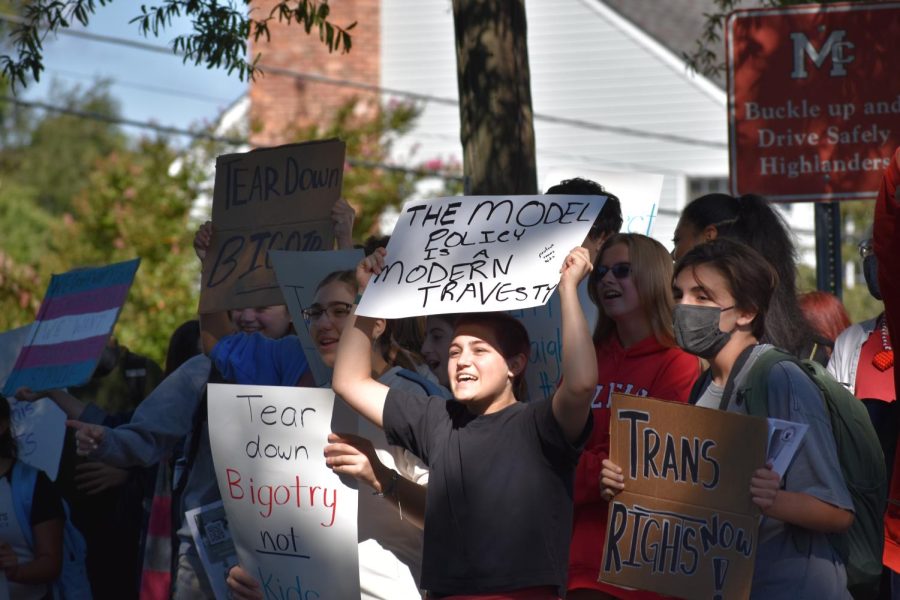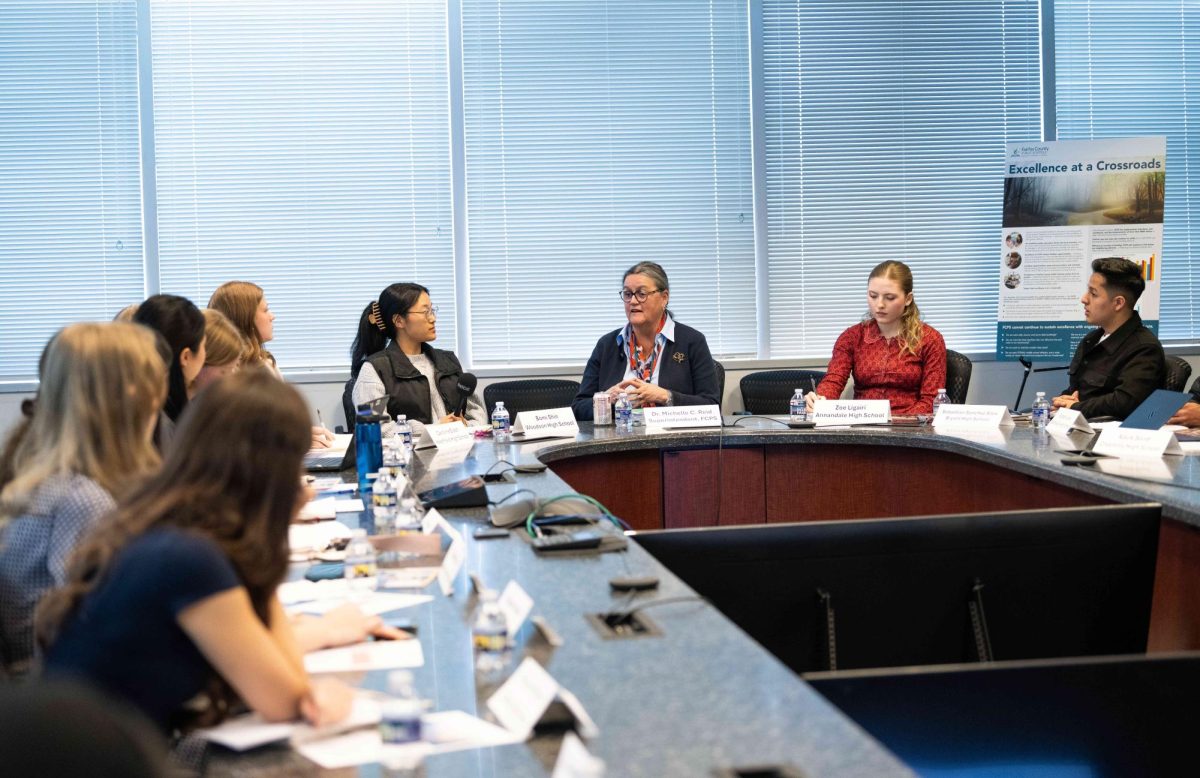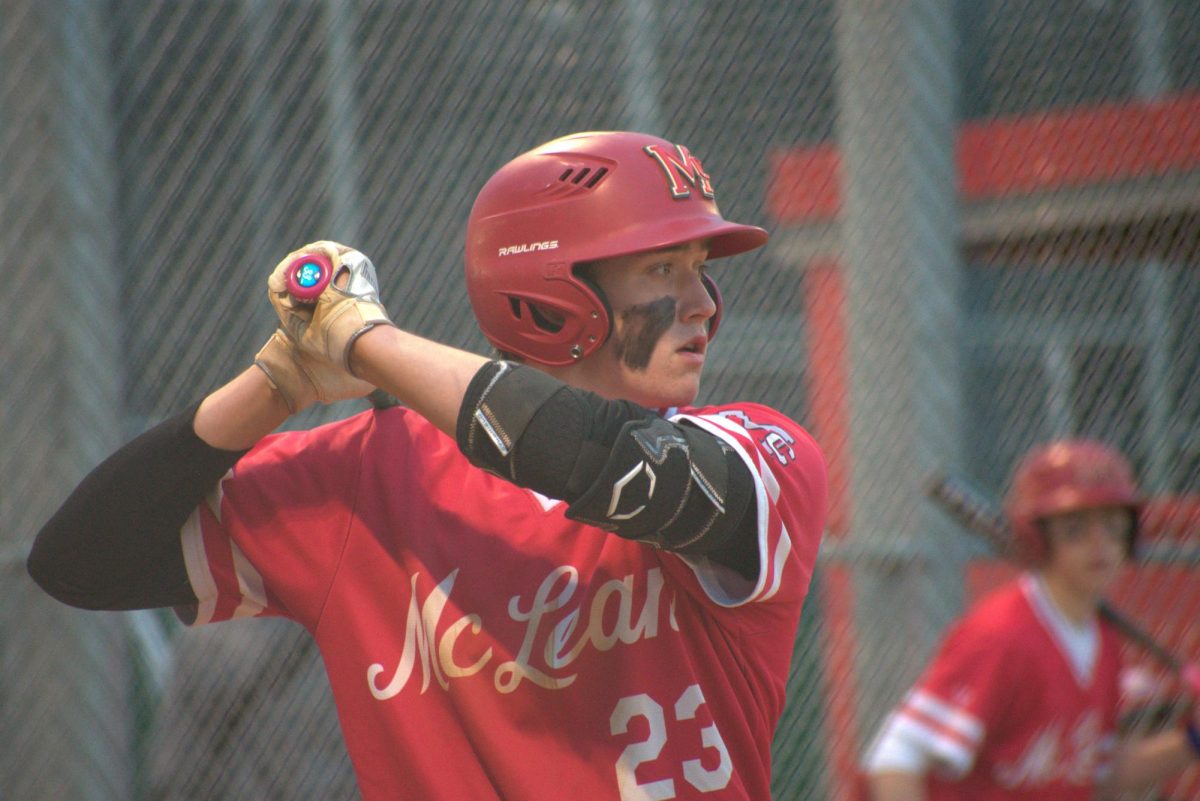On September 27th, McLean students participated in a walkout organized by McLean’s Gender Sexuality Alliance (GSA) and queer community. The walkout was held to protest the Virginia Department of Education (VDOE) proposing a new model policy concerning pronoun usage and the privacy of queer students. Throughout the state, over 90 schools held walkouts. The wider movement was organized by the Virginia-based Pride Liberation Project, a student-led LGBTQ+ advocacy group.
“These [walkouts] are part of a larger campaign to try to persuade the Governor Youngkin at the top to stop these model transgender policies [from being implemented] as well as to stop specific school boards from implementing them,” senior GSA officer Ranger Balleisen said.
The new model policy has been met with criticism from Virginia’s queer and ally populations, especially transgender students.
“[We held the] walkout so that we could unify ourselves against this policy. We do not approve,” sophomore GSA officer Gavin Grant said. “As students we don’t approve, as trans people we don’t approve and as FCPS [community members] we don’t approve.”
The proposed model policy mainly focuses on giving parents and guardians the power to decide the pronouns, preferred name and gender identity that their child would be addressed by in schools. Schools would be required to keep parents and guardians informed on their child’s sexuality and gender identity, not allowing changes to deadnames or gender without parental consent.
“We have to get the word around, because no one wants to read all the legal policies,” Grant said. “We have to get people to understand [the issue] because if they don’t…[the policy] is just going to go into effect.”
The suggested policies would put students living in hostile households at danger, causing the queer community to feel attacked and endangered.
“Governor Youngkin and the Virginia Department of Education are acting against our will and against our best interests,” senior GSA president Casey Calabia said.
FCPS and the state government of Virginia are currently at odds with each other over policies regarding transgender students. Over the summer, FCPS’ Student Rights and Responsibilities were expanded so that students do not need parental consent to use their preferred pronouns or names in school. The SR&R was updated this year to align its policies regarding transgender students to the guidelines provided by previous transgender model policy created in 2020.
“The [SR&R] changes relate to [the school board’s] Regulation 2603, which was developed in 2020 as a result of House Bill 145 and Senate Bill 161 requiring the Virginia Department of Education to develop and make available to each school board a model policy concerning the treatment of transgender students in public elementary and secondary schools,” FCPS School Board Dranesville District Representative Elaine Tholen said. “With the passage of the bill, the Code of Virginia was amended to address common issues regarding the treatment of transgender students in public schools.”
The 2020 model policy was passed by the Virginia Legislature under former governor Ralph Northam. It left it up to individual school districts to resolve what to do when students and parents disagreed on pronoun use. This year, Fairfax County decided that a student acting on their gender identity was their own choice, not their parents’.
“The former model transgender policies were actually trans-positive,” Balleisen said. “A lot of what it did was ensuring gender neutral bathrooms in school and allowing certain protections for transgender students in school.”
The 2020 model policy was very popular among the transgender student community; seeing a proposed state policy that directly contradicts the former guidelines has struck fear into the genderqueer and transgender communities.
“[Much] of the policies in the 2020 transgender model policy were life saving,” Calabia said. “People have come and told me, ‘I would be dead, I would have committed suicide if these policies hadn’t been enacted,’ so the fact that they’re getting taken away is going to hurt people.”
The previous changes to the SR&R regarding students’ gender identity were passed with the mental health of transgender and genderqueer students in mind.
“Data obtained from the Trevor Project National Survey on LGBTQ Youth Mental Health in 2020 indicates that there is a decrease in attempted suicide by transgender and nonbinary youth when people in their lives use their chosen name and pronouns,” Tholen said. “Another research brief from the Trevor Project shows that using one’s chosen name resulted in a 29% decrease in suicidal ideation and a 56% decrease in suicidal behavior.”
The new model policy removes the freedoms that students have to express their identities without a parental request, even using language restricted to the gender binary in its writing, exclusively referring to all students as “his or her.” In the document, a transgender student is defined as “a public school student whose parent has requested in writing, due to their child’s persistent and sincere belief that his or her gender differs with his or her sex, that their child be so identified while at school.”
“This is treating trans kids like they’re property of their parents, and by extension, all kids in Virginia,” Calabia said. “It’s setting a really negative precedent.”
The 2022 model policy will not go immediately into effect. Starting on Sept. 26, the Virginia Department of Education’s website opened a comment section where residents could respond to the policy. The comment section will be accessible until Oct. 26. As of Sept. 27, over 23,000 comments have been left on the page. The comment section can be accessed here.
View this post on Instagram

















